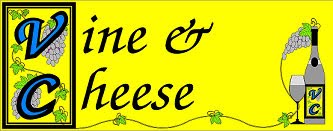We watched "To Catch a Thief" last weekend. The 1955 Hitchcock film told the story of the fictitious John Robie (Cary Grant) who was a vineyard owner in post-World War II France trying to live down his past as a jewel-thieving cat burglar. Before that he was a resistance fighter for France in the war. It got me thinking about Frank Schoonmaker, one of the giants of the twentieth century wine industry and a war hero in his own right.
Some chronology may be helpful first: World War I lasted from 1914-1918; World War II, from 1939-1945; and American Prohibition, from 1920-1933.
Schoonmaker was born in 1905 South Dakota but lived most of his early life on the east coast in the general vicinity of New York City. His father was a writer employed by the federal government. Young Frank was raised in a multi-lingual Dutch-American home. After high school he went to Princeton where after two years there he informed his family that he was going to Europe to travel (and live the bohemian life). Young Frank was a natural writer like his father and kept a journal which he turned into several travel guides published in America at a time when there were few if any available.
In his early travels Frank met Raymond Baudoun, a French wine writer who introduced him to the industry, particularly Burgundy where Frank met the individuals behind the huge negotiant wine companies. Europe at the time was beset by economic problems on two fronts: the cost of World War I and the loss of American markets for alcoholic beverages caused by Prohibition. Knowing what he did about Prohibition Era America, the young Frank Schoonmaker in Europe determined that the noble experiment was going to fail and he was determined to capitalize on the repeal. His next publication would be "The Complete Wine Book" scheduled for release just prior to repeal.
Schoonmaker, using his contacts in Burgundy and elsewhere, also planned his "Frank Schoonmaker Selections" importing company which he incorporated upon returning to America before opening his second front in the war for the future wine business in America. This time Frank went to California and approached Wente, Concannon, Almaden, and others selling himself as a consultant capable of increasing their sales with just a few marketing adjustments and ultimately as someone who could greatly increase their sales by representing them with his company.
In his employ at the time was Alexis Lichine, another giant of the twentieth century who happened to have a biography very similar to Schoonmaker's. It is believed Lichine was more of the salesman while Schoonmacher was the businessman. Between the two of them they embellished wine labels with additional verbiage to attract what was anticipated to be a more sophisticated public and they coined the word "varietal" to describe the new wines they were marketing. It is hard to imagine now but Americans of this era were an unsophisticated lot not just because of the lost time during Prohibition but because liquor was the alcoholic beverage of choice before Prohibition.
Tuesday, June 11, 2013
Subscribe to:
Post Comments (Atom)




No comments:
Post a Comment